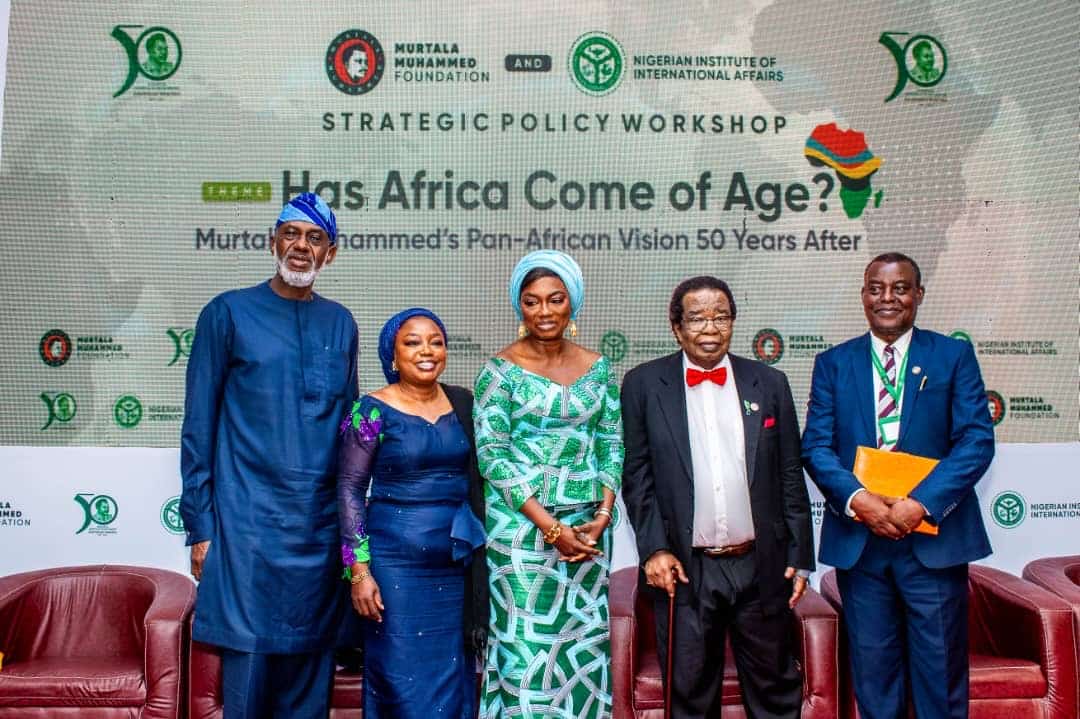The Federal Government, on Friday, insisted on the 240 per cent hike in tariff payable by power consumers in the band ‘A’ category despite calls for its reversal.
It also revealed that the subsidised power pricing regime would be for the short term, with a transition plan to achieve a full cost-reflective tariff within a period of three years.
However, the decision did not go down well with the Nigeria Labour Congress, which told the Federal Government to prepare for the consequences of the tariff hike, which it described as wicked and unpopular, stressing that since the government preferred to listen to the World Bank and International Monetary Fund, it should be ready to face the consequences.
The Head of Information, NLC, Benson Upah, told one Saturday PUNCH, “We did say earlier that this tariff hike is insensitive and unpopular. So if the government elects to continue with the hike or persists in something that is evil, I’m sure it is equally prepared for the consequences of that evil.
“The manufacturers are saying this is going to hurt businesses and make the environment more hostile, and we also said so. There is no place in the world where high power tariffs have supported manufacturing. Not even in the developed world.
“So, it completely beats our imagination for the minister to have the audacity to say that the policy would continue. What this means is that the minister and the President are not in charge. It is saddening that the minister elected to pursue an unpopular policy.”
Upah added, “It shows that the minister and the President are not in charge. The people in charge are the World Bank and the IMF. They are the ones driving this highly injurious policy.
“So, our leaders should be prepared for the consequences of this highly injurious policy. That is what I’ll say about this issue for now.”
Manufacturers and the organised labour had kicked against the hike in tariff payable by about 1.9 million consumers, which was approved and announced by the Federal Government on Wednesday.
Subsidy on electricity was withdrawn completely from the tariff of consumers on the band A category, which constitute about 15 per cent of the total 12.82 million power consumers across the country.
The government announced the hike in electricity tariff at a press briefing in Abuja by NERC, adding that those affected would pay N225 per kilowatt-hour, up from the previous rate of N68/kWh, representing about 240 per cent increase.
The government stated that the decision took effect on April 3, 2024.
But the Organised Private Sector, NLC, and the Trade Union Congress kicked against the hike in tariff for power users and demanded that the decision be reversed.
They argued that the hike in tariff would send manufacturers out of business, worsen inflation and stifle small and medium enterprises, adding that there was no place in Nigeria currently enjoying up to 20 hours of power supply daily.
Band A power users are those who get up to 20 hours supply of electricity daily.
At a press briefing in Abuja on Friday, the Minister of Power, Adebayo Adelabu, insisted that the Federal Government would continue with the new tariff regime for Band A consumers despite calls for its reversal.
He said this was because the government could no longer continue paying humongous sums as power subsidy, stressing that subsidy on electricity for 2024 would cost the government about N2.9tn.
The minister said, “We are in the subsidy pricing regime, whereby the government provides a large portion of the cost of producing, transmitting, and distributing power.
“I must tell you that as of today, before the introduction of the tariff increase, the government is subsidising nothing less than 67 per cent of the cost of producing, transmitting and distributing electricity in Nigeria.
“At the current exchange rate, this is going to translate into N2.9tn for 2024. This is more than 10 per cent of the national budget. The power sector is just a single sector out of the many sectors that the government has to attend to.”
Adelabu said other sectors and ministries were competing for government funding and that “it will be very insensitive on our part to force or compel the government to continue to subsidise at the rate of almost N3tn for the power sector alone. We just have to be realistic and considerate.”
He noted that by ending the subsidy for band A customers, the government would save about N1.4tn, adding that this fund would be channelled into the development of other sectors such as health, education, works, etc.
The minister argued that the tariff hike was pro-poor, as those affected were mainly residents who could afford the cost, but noted that subsidy on electricity was only going to be for the short term.
According to him, the Federal Government plans to end the subsidy on power within three years, and the withdrawal of subsidy from band A customers is just the pilot phase.
He said, “This tariff review conforms with our policy thrust of maintaining a subsidised pricing regime in the short run or the short term with a transition plan to achieve a full cost-reflective tariff for over a period of, let us say three years.
“I have mentioned it in a couple of media briefings that it is because of the government’s sensitivity to the pains of our people that we will not make us migrate fully into a cost- reflective tariff or remove subsidy 100 per cent in the power sector like it was done in oil and gas sector.
“This is more like a pilot for us at the Ministry of Power and our agencies. It is like a proof of concept that those that have the infrastructure sufficient enough to deliver stable power and enjoy 20 hours of light to be the ones to get tariff hike.”
NERC fines AEDC
Within two days of the tariff hike, the Abuja Electricity Distribution Company Plc applied the new rate of N225/kWh to all consumer bands under its franchise areas, contrary to the directive that only those on band A should pay the new rate.
As a result, NERC slammed a N200m fine on the firm for violating its Supplementary Order on the April 2024 Multi-Year Tariff Order.
On Friday, many customers of the AEDC raised the alarm that they were not on band A but their bills had been raised to N225/kWh, a development that made NERC to intervene.
For instance, a customer, who simply identified himself as Mr Yakubu, said, “Interesting moment in Nigeria. On Tuesday, April 2, 2024, I bought an electricity token of N9,900 and I got 135 units.
“Yesterday, April 4, 2024, I wanted to confirm where NERC and AEDC social strata classification of electricity consumption puts me, so I bought an electricity token of N9,900 and I got 40 units. No supply of electricity throughout the night. Can I be said to be enjoying band A, 20 hours supply?”
Reacting to the development in a statement, the power sector regulator said, “The Nigerian Electricity Regulatory Commission has taken enforcement action against the Abuja Electricity Distribution Plc for non-compliance with the Supplementary Order to the April 2024 Multi-Year Tariff Order 2024 for the AEDC.
“The AEDC has been fined ₦200,000,000 for failure to comply with the prescribed customer band classifications for the tariff billing.
“This decision follows a detailed review and customer feedback, which revealed that the AEDC had applied the new tariff to all customer bands, contrary to the order, which was designed to ensure fair billing practices.”
The commission stated that the AEDC was therefore mandated to: “a. Reimburse all customers in bands B, C, D and E, respectively, who were billed above the allowed customer categories/tariff bands provided in the order.
“b. Reimburse through the provision of the balance of customer tokens that the affected customers would be entitled to receive at the applicable rates and all token reimbursements shall be issued to the affected customers by April 11, 2024.
“c. Pay the sum of N200,000,000.00 as a fine for the flagrant breach of the commission’s order. d. File evidence of compliance with the directives in a and c with the commission by April 12, 2024.
Atiku condemns hike
The 2023 presidential candidate of the Peoples Democratic Party, Atiku Abubakar, has warned the Federal Government that Nigerians will suffer more with an increase in electricity tariffs.
Atikun said in a statement he personally signed on Friday that the increase in electricity tariffs would exacerbate the citizens’ hardships, particularly as inflationary pressures were on the rise.
He admonished the Federal Government, particularly NERC, to understand the root cause of inefficiencies in the power sector before implementing another round of reforms.
The statement read in part “As usual, the government is unleashing another dose of reforms without adequate notice and without an adequate post-reform plan to mitigate the pain.
“The increase in electricity tariff comes at a time when Nigerian citizens are going through excruciating difficulties occasioned by the withdrawal of subsidy on PMS and floating of the domestic currency.
“The government has not successfully dealt with the pains associated with the implementation of those measures, and now this. The hike in electricity tariff will create more difficulties for the citizens as inflationary pressures are elevated. Our manufacturing sector will similarly be impacted negatively. Not only are they paying higher interest rates on their bank loans, but also paying more for diesel, and paying higher wages as a result of the new minimum wage. The President’s men are pushing the economy into a deeper crisis. His reforms are without a human face.
“It is important that we understand the root cause of the inefficiencies in the power sector before unleashing another dose of reforms. It is time to revisit the privatisation exercise that produced the Discos.
“Tinubu must (a) ensure that these reforms are sequenced, (b) implement measures to mitigate the pain, and (c) hold the NERC responsible for ensuring improved service delivery.”
Lawmakers fault hike
The Minority Caucus of the House of Representatives called on the Federal Government to prevail on NERC to cancel the recent increment in electricity tariff across the country.
In a statement issued in Abuja on Friday, the Minority Leader of the House, Kingsley Chinda, described the hike as inhuman and evil for placing an unbearable burden on the already strained populace, thereby exacerbating economic hardships and widening the chasm of inequality.
The statement read in part, “We urge Mr President, Bola Tinubu to prevail on the electricity regulator, NERC, to rescind this decision and prioritise the welfare of the people.
“Transparent dialogue and inclusive decision-making processes are imperative to address the root causes of the energy sector’s inefficiencies and ensure sustainable solutions that benefit all stakeholders and not consistent and persistent increase in tariff.
“We call for increased accountability and transparency in the management of resources within the electricity sector. Citizens have the right to demand efficient service delivery and fair pricing mechanisms that align with their economic realities.”
Groups react
The Chairman of the South-South United Action for Democracy and the Rivers State Civil Society Organisations, Georgewill Enefaa, and a former President of the Joint Health Sector Union, Obinna Ogbonna, criticised the electricity tariff increase.
Enefaa said it was bad for the government to allow the increase in electricity tariff amid the economic situation of the country.
He said, “This present administration represents capitalism, which is only interested in profits. By its design, it is not interested in the welfare of the people, just profits.
It is quite pathetic and it is a height of insensitivity to the government that cannot provide other sources of energy like petroleum.
“This is a time when production is dropping in the country and they decided to increase one of the significant means of production, which is electricity. It is wickedness, to say the least, and barbaric. The easiest explanation is that this administration is interested in tapping the last straw of blood from the veins of Nigerians.”
Ogbonna criticized the tariff increase, saying the move was coming at a period when Nigerians were still struggling with the removal of fuel subsidy and its effects.
He added that it appeared as if the Federal Government was doing trial and error with the economy, and advised President Bola Tinubu and his economic team to find a direct pattern of fixing the economy.
The President, Nigeria Automobile Technicians Association, Magaji Sani, said the increase would have grievous implications for members of the body.
According to him, the Federal Government should concentrate on delivering stable electricity to Nigerians before considering an increase in tariff.
He said, “The implication of this hike in electricity tariff will be grievous. Firstly, electricity is not available. People are just managing the little they see and augment it with generators. Instead of fixing the electricity supply first, they are talking about increasing tariffs. If you want to sell something, you must have it in good quality.
“There is a hardship because everything in the country is now very expensive. People have yet to recover from the current inflation, and here you are increasing the electricity bill. It is very unfortunate. The people voted in the government, it is wrong for the same government to make life difficult for the people. We are calling on the government to reverse the increase.”
PUNCH













